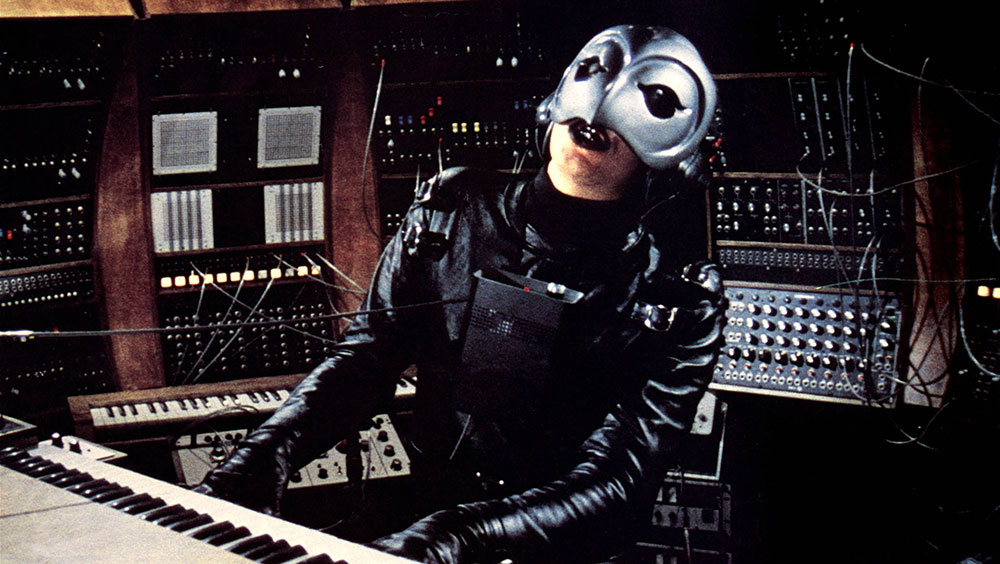The aspiring musician Winslow Leach (William Finley) is conned by record producer Swan (Paul Williams) into relinquishing ownership over his operatic opus Faust in Brian De Palma’s Phantom of the Paradise (1974). After Winslow is left physically disfigured and voiceless in a freak record press accident, he transforms into the titular masked character and lurks around Swan’s Paradise theater. Eventually, he becomes infatuated with the beautiful vocalist Phoenix (Jessica Harper), believing her to be the perfect performer for his stolen cantata, which is now set to open at the Paradise. Sporting a mask, silver teeth, and a robotic vocal transmitter, an unrecognizable Winslow pressures Swan to cast Phoenix and adhere to his vision. During his attempted coup, he uncovers a Dorian Gray-esque conspiracy behind the producer’s professional triumph.
The film was a box office bomb upon release; it was only well-received in Paris and Winnipeg. In the 50 years since it came out, Phantom of the Paradise has found a passionate fan base due to its success at capturing the conventions of ‘70s popular culture. Aside from the obvious riffs on iconic texts such as The Phantom of the Opera and Faust, the film also parodies classic movies—there’s a Psycho-inspired shower gag and stage make-up inspired by Cesare the Somnambulist from The Cabinet of Dr. Caligari (1920). This parodic impulse is one that De Palma continued to indulge throughout his career. Star and composer Paul Williams was recruited by the director to pen the film’s original songs, which lampoon rock subgenres by expertly mimicking the musical stylings of The Beach Boys and glam rock precursors like Marc Bolan and Robert Plant.
De Palma and Williams’ careers were not entirely affected by the film’s commercial failure. Two years after directing Phantom of the Paradise, De Palma had a breakthrough critical and commercial hit with Carrie (1976), the first-ever screen adaptation of Stephen King’s work. Williams—already a well-known songwriter for Three Dog Night, Carpenters, and other ‘70s MOR acts—continued working in film, writing music for Bugsy Malone (1976), Barbra Streisand’s A Star is Born (1976) and, most famously, The Muppet Movie (1979). Phantom of the Paradise’s fandom grew in the decades following its release, with midnight audiences that were more receptive to its slapstick-glam sensibility. Among these fans were two film-enamored French teenagers who later cited the film as an inspiration for their masked robot personas in the band Daft Punk. Eventually, they even collaborated with Williams on their final album.
Phantom of the Paradise screens tonight at Nitehawk Williamsburg as part of the series “Late Nite, 1974.”



